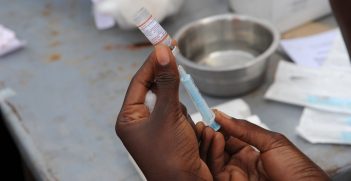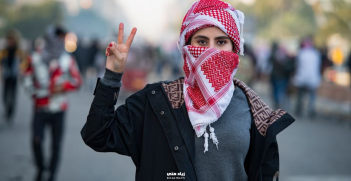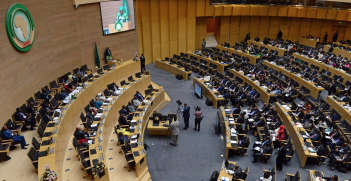Internationalising the Mozambique Insurgency

For decades Mozambique was a bright spot in Africa. Now, ravaged by insurgency and inept private military companies, its future is less certain.
International actors have played an important role in Cabo Delgado’s war against jihadist attacks in Northern Mozambique. From Russia’s Wagner Group to the South African Dyck Advisory Group (DAG), mercenary companies proved more adept at protecting the TotalEnergies liquid natural gas facility in Afungi than preserving civilians’ lives. Now the Rwanda and South African Development Community (SADC) armies are helping Mozambique to combat against the jihadist insurgency, which possesses solid local roots.
Surprisingly, on 5 October, 2017, a police station in Mocimboa da Praia, in Cabo Delgado Province, was attacked by members of a unknown jihadist group. The dream of Mozambique as an African country with a high economic growth, lack of war, and regular electoral processes since 1994, had cracked. In 2013-2014, war broke out with Renamo, the main opposition party with a history of insurgency.
Nonetheless, the international community’s confidence in Mozambique was not affected by this new war. On the contrary, it had already been undermined by a hidden public debt of about $2.2 billion discovered a year earlier, in 2016. This revelation prompted Western donors to suspend their Budget Support initiative, which funded almost 50 percent of Mozambican public expenditure.
The reference to this episode is important because of its origins: this money had been promised for the protection of the Northern Mozambique coastline, where piracy, drug traffic, and illicit fishing threatened to undermine the stability of the country. The transformation of this operation into an international scheme of corruption revealed the lack of seriousness of Mozambican institutions. The dream of an African country “on the right track” was ending.
This dream had made the international community deaf to the criticisms that many observers had advanced. Since the dream had to go on, the lack of war was interpreted as peace, the abysmal socio-economic differences as a cost to pay for an unstoppable growth, the exclusion of important ethnic groups – such as Amakhuwa and Kimwane in Northern Mozambique – as a contingent situation which humanitarian assistance could resolve, and the implementation of regular elections as transparent processes to choose Mozambican ruling classes.
The first attack in Mocimboa da Praia was classified by Mozambican authorities as an attack carried out by common bandits. For many months, the Mozambican government denied the actual situation. In Mozambique religion had rarely caused conflict, and this time, many assumed, was not different. Mozambican Islam in Northern Mozambique had a Sufi, tolerant tradition, thus jihadist attacks did not seem a convincing hypothesis.
As we now know, things went differently. Of course, it was not only a problem of religion. The exclusion of the youth from education and employment in Northern Mozambique, the economic and political supremacy of an ethnic minority, Makonde, to detriment of the majority constituted by Amakhuwa and Kimwane, the radicalisation of some young Muslim students who completed their formations in Saudi Arabia, Egypt, and Sudan — all these factors were decisive in transforming resignation into desperation, and desperation into violence. It is likely that without these external elements, this insurgency would not have manifested.
The first such element was the substantial investment in gas by multinational corporations: TotalEnergies onshore in Afungi, and Exxon Mobil and ENI offshore in Cabo Delgado. This was not just the “resource curse” which affected many African countries. Every country has its own history, and Mozambique is no exception. The spotlight should instead be on TotalEnergies who built a closed campus in Afungi, and prioritised external staff over the less skilled local people. Exclusion from all kinds of opportunities was now visible, evident, and attributable to a state which did not provide its citizens with the technical education necessary to be hired by an important multinational corporation like TotalEnergies.
The second element concerns the internalisation and radicalisation of Sufi Islam in Northern Mozambique. In the years preceding the attacks, Mozambican intelligence reported that something was happening inside Muslim communities. Groups of Muslim youths began to occupy mosques and to cast out the old Xehe who had traditionally led their Islamic communities in Cabo Delgado. The experience of the youths in Islamic schools in Saudi Arabia, Sudan, and Egypt, as well as the presence of radical preachers in Mozambique like Aboud Rogo, killed in Kenya in 2012, exerted great influence.
Only two years after the attacks began, the Mozambican government accepted external military aid. However, it opted for a mercenary company, Russia’s Wagner Group, to face the insurgency. Although Wagner carried sophisticated equipment and weapons, such as drones and helicopters, it did not anticipate the insurgency’s style of combat. Drones and helicopters are useless in the bush. Due to the lack of preparation of the Mozambican army, Wagner sustained large losses, and subsequently chose to retreat, despite the excellent relationships between Russia and Mozambique.
The experience of South Africa’s DAG was no better. Accused of shooting indiscriminately and killing civilians, DAG was also unable to face the military advance of the enemy. Insurgents conquered the important town of Mocimboa da Praia, which remained in their hands for nearly a year. The Central Africa Province of the Islamic State claimed this attack, showing close ties with the Mozambican local insurgents. Among their chiefs, many Tanzanian, Congolese, Somali, and Ugandan radical Muslim leaders offered a clear demonstration that Somali Al Shabaab and the Islamic State were supporting the local rebellion. These ties induced the United States to interpret the war in Cabo Delgado as a global war against Islamic terrorism that the west had to combat in Mozambique. In this way, the aforementioned local factors, the true explanation for Mozambique’s insurgency, were neglected for a long time, delaying the understanding and the solution of the phenomenon, and causing unnecessary violence.
Due to the insecurity of the whole area, TotalEnergies suspended its operations in Afungi. On 21 May, 2021 in Paris, Emmanuel Macron met with Mozambican President Nyusi, and Rwandan President Kagame in attempt to assist Mozambique. In July, a contingent of 1000 Rwandan soldiers was deployed to Cabo Delgado (today they number 2000). Although Kagame has always maintained France had no role in financing the Rwandan mission in Cabo Delgado, many observers think otherwise. Also, at this time the Mozambique’s relationships with the SADC began to sour. The SADC, and in particular South Africa, pressured the Mozambican government to accept military aid for Cabo Delgado. Cabo Delgado, according to Pretoria, represented a great risk for the region as a whole, thus a military intervention was necessary. Amid negotiations however, the SADC became aware that the Rwandan army had already entered Cabo Delgado. The response was almost immediate: SADC soldiers were also deployed to Cabo Delgado, which bypassed the serious, diplomatic incident.
Now, attacks continue in Cabo Delgado. The Rwandan army has been very effective, immediately retaking Mocimboa da Praia and securing TotalEnergies facilities. Nevertheless, TotalEnergies has not yet resumed operations, as the region of Nangade and Mueda remains under attack. This region is under the control of the SADC army, which is facing great problems and criticisms from the local population because of its supposed inefficiency.
Despite the declarations from Mozambican authorities, it seems that the Cabo Delgado operation is favouring a military solution. But the insurgency will not be defeated on the battlefield. This insurgency has deep, local roots, embedded in social, political, economic, ethnic, and religious factors. The radicalised Muslim youth in Cabo Delgado developed alternative identities in relation to a Mozambican national state perceived as far away from their interests and sentiments. Therefore, the idea of an institutional entity which could be alternative to this State represents their new dream… And dreams die hard.
Luca Bussotti moved to Mozambique in 2001, acquiring the Mozambican nationality and becoming a Lecturer at the University of Eduardo Mondlane. Today he is an Associate Visiting Professor at the Federal University of Brazil, specialised in political issues in Lusophone Africa, with a particular emphasis on risk, terrorism, security, and peace.
This article is published under a Creative Commons Licence and may be republished with attribution.





